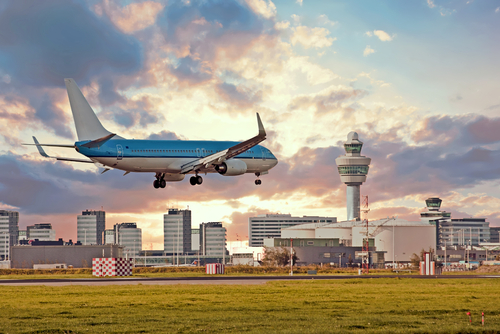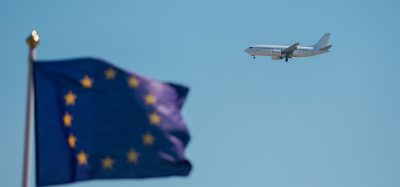Controversial Schiphol flight cuts must not happen under a caretaker government
- Like
- Digg
- Del
- Tumblr
- VKontakte
- Buffer
- Love This
- Odnoklassniki
- Meneame
- Blogger
- Amazon
- Yahoo Mail
- Gmail
- AOL
- Newsvine
- HackerNews
- Evernote
- MySpace
- Mail.ru
- Viadeo
- Line
- Comments
- Yummly
- SMS
- Viber
- Telegram
- Subscribe
- Skype
- Facebook Messenger
- Kakao
- LiveJournal
- Yammer
- Edgar
- Fintel
- Mix
- Instapaper
- Copy Link
Posted: 4 September 2023 | International Airport Review | No comments yet
IATA, EBAA, and ERA warned that the proposed cuts to flight numbers at Schiphol airport must not proceed under a caretaker government.


IATA announced strengthened profitability projections for airlines in 2023, which will then largely stabilise in 2024.
The International Air Transport Association (IATA), European Business Aviation Association (EBAA), and European Regions Airline Association (ERA) warned that the proposed cuts to flight numbers at Schiphol airport must not proceed under the leadership of a caretaker government. This matter remains before the courts and the proposed process is strongly opposed by the airline industry; therefore, in no way can this be considered “uncontroversial.” In a few months’ time, this government will not be accountable for the severe consequences that may follow from the Schiphol decision, particularly with regards to Netherlands’ trading partners, lost jobs and prosperity at home.
Such a consequential and controversial move requires proper democratic scrutiny and political accountability. The government’s desire for a forced cut to Schiphol’s annual flight numbers to 460,000 under an ‘Experimental Regulation’ was initially blocked by the Dutch court, which found it to be contrary to Dutch obligations under EU law and bilateral air services agreements connected with the Balanced Approach to noise.
The Balanced Approach is a longstanding internationally agreed process to manage noise at airport communities that carries the weight of law in national jurisdictions, including in the EU and many of its trading partners. A core tenet of the Balanced Approach is that operational restrictions and flight cuts are the last resort, to be considered only when a number of other steps have been taken to achieve noise mitigation targets. The Balanced Approach is used specifically to ensure local community needs are respected, the wider benefits of air connectivity to the nation are protected, and the actions are respected internationally.
The government successfully appealed and overturned the initial decision, with the Court of Appeal deciding that the Balanced Approach does not apply to the Experimental Regulation. The international airline community represented by IATA, other airline associations and individual carriers, deeply concerned by the implications of this highly controversial decision. The coalition of airlines and associations has commenced Supreme Court cassation proceedings challenging this.
https://twitter.com/IATA/status/1697642806401958142
Flight cuts of this magnitude at Schiphol will mean reductions in slot holdings that will negatively impact passenger and freight services. No mechanism, domestic or international, exists for agreeing such cuts. Rushing this process through could result in retaliatory international action and further legal challenges, including from governments defending their rights under international agreements and bilateral treaties.
In such circumstances, any attempt by Minister Mark Harbers and a failed government in caretaker mode to rush through the flight cuts at Schiphol would be irresponsible on several levels:
- It will demonstrate a contempt of the necessary democratic and legal scrutiny required of such a highly irregular and economically damaging proposal.
- It will place the Netherlands squarely in conflict with its trading partners defending their rights under international agreements and bilateral treaties.
- It should provoke the EU to defend its own laws which require rigorous application of the Balanced Approach, and
- It will cause significant harm to the economy and jobs.
“Airlines are fully committed to addressing noise issues at airports under a proper Balanced Approach process. It is essential that any decision be postponed until a fully functioning and accountable government with a fresh mandate is in place. This unprecedented and complex proposal can then be considered carefully, with the legal questions settled and the full facts and implications understood and in the public domain, and with sufficient time for the air transport industry to adapt if necessary, when a final decision is known,” said Willie Walsh, IATA’s Director General.
A statement released by Director General of ACI Europe, Olivier Jankovec, is as follows:
“the outcome of the Balanced Approach process for noise management conducted for the capacity reduction at Schiphol as of Winter 2024 – as duly required under EU law – is just not acceptable. Indeed, the caretaker Dutch Government has not sufficiently considered proposed alternative measures that would have allowed the stated noise mitigation targets to be achieved without requiring a capacity reduction at Schiphol. Moreover, while the decision to temporarily reduce capacity as of Summer 2024 will provide much-needed legal certainty, it has been taken without conducting the Balanced Approach process.”
He added: “These decisions are about quick political wins ahead of national elections – at the expense of the Dutch economy and jobs. We are calling upon the European Commission to urgently ensure the respect of the Balance Approach principles as per EU law.”
Related topics
Related airports
Related organisations
European Business Aviation Association (EBAA), European Regions Airline Association (ERA), International Air Transport Association (IATA)

















